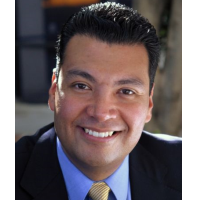State Drops Opposition to Letting Thousands of Low-Level Ex-Cons Vote Again
 Secretary of State Alex Padilla
Secretary of State Alex Padilla
More than 45,000 convicted felons out on probation—no, NOT PAROLE—will be allowed to vote in California after Secretary of State Alex Padilla reversed a decision by his predecessor, Debra Bowen, and dropped an appeal of a judge’s ruling (pdf) last May.
Alameda County Superior Court Judge Evelio Grillo said Bowen disenfranchised tens of thousands of felons in 2011 who were reclassified by California's new prison realignment as being on probation from the county, not parole from the state system. The precise number was put at 45,000, 58,000 and 73,000 in various publications.
Bowen thought otherwise, and said their status does not change “just because the mandatory supervision that is a condition of their release from prison is labeled something other than ‘parole.’ ” She appealed the judge’s ruling. Bowen and Padilla are both Democrats.
Padilla, who was elected in November and took office in January, said at a news conference, “It is not lost to me that persons of color are disproportionately represented in our correctional institutions and an undeniable disparity exists.” He was accompanied by inmate-advocacy representatives.
“Passage of the Voting Rights Act was not easily won,” Padilla said in a statement. “If we are serious about slowing the revolving door at our jails and prisons, and serious about reducing recidivism, we need to engage—not shun—former-offenders. Voting is a key part of that engagement.”
Judge Grillo addressed broader legal debates going on nationally over classification and treatment of felons when he wrote that the state had passed realignment in 2011 with the express purpose of “improving public safety outcomes and facilitating their reintegration back into society.” He figured that might include being allowed to vote.
So did former U.S. Attorney General Eric Holder, who said in February before resigning, “These restrictions are not only unnecessary and unjust, they are also counterproductive. By perpetuating the stigma and isolation imposed on formerly incarcerated individuals, these laws increase the likelihood they will commit future crimes.”
Voting rights, in general, are under attack nationwide for people of color, the elderly, poor people, students and folks with disabilities. In 2013, the U.S. Supreme Court invalidated a key provision of the Voting Rights Act of 1965, greatly limiting its scope. People who want to disenfranchise those voters probably aren’t fond of felons.
The American Civil Liberties Union (ACLU) calculates (pdf) that “an estimated 5.85 million citizens cannot vote as a result of criminal convictions, and nearly 4.4 million of those have been released from prison and are living and working in the community.”
Because blacks are far more likely to be locked up than whites, one in 13 African-Americans of voting age have lost the right. That’s four times the national average.
There is no uniform national law governing voting rights for felons. Currently, 35 states don’t let them vote (pdf) after release from prison, according to the ACLU. The Democracy Restoration Act (pdf), regularly rejected by Congress since 2008, would guarantee voting rights for freed felons in federal elections.
–Ken Broder
To Learn More:
Voting Rights Intact for Lower-Level California Felons (by Henry K. Lee, San Francisco Chronicle)
Tens of Thousands of California Convicts to Regain Voting Rights (by Julia Horowitz, Associated Press)
Tens of Thousands of Californians Are About to Get Their Voting Rights Restored (by Mollie Reilly, Huffington Post)
Judge Says Secretary of State Illegally Denied Thousands of Felons the Right to Vote (by Ken Broder, AllGov California)
Secretary Padilla Ends Appeal of Scott v. Bowen Case (California Secretary of State)
The Democracy Restoration Act of 2014 (American Civil Liberties Union) (pdf)
- Top Stories
- Controversies
- Where is the Money Going?
- California and the Nation
- Appointments and Resignations
- Unusual News
- Latest News
- California Forbids U.S. Immigration Agents from Pretending to be Police
- California Lawmakers Urged to Strip “Self-Dealing” Tax Board of Its Duties
- Big Oil’s Grip on California
- Santa Cruz Police See Homeland Security Betrayal in Use of Gang Roundup as Cover for Immigration Raid
- Oil Companies Face Deadline to Stop Polluting California Groundwater




